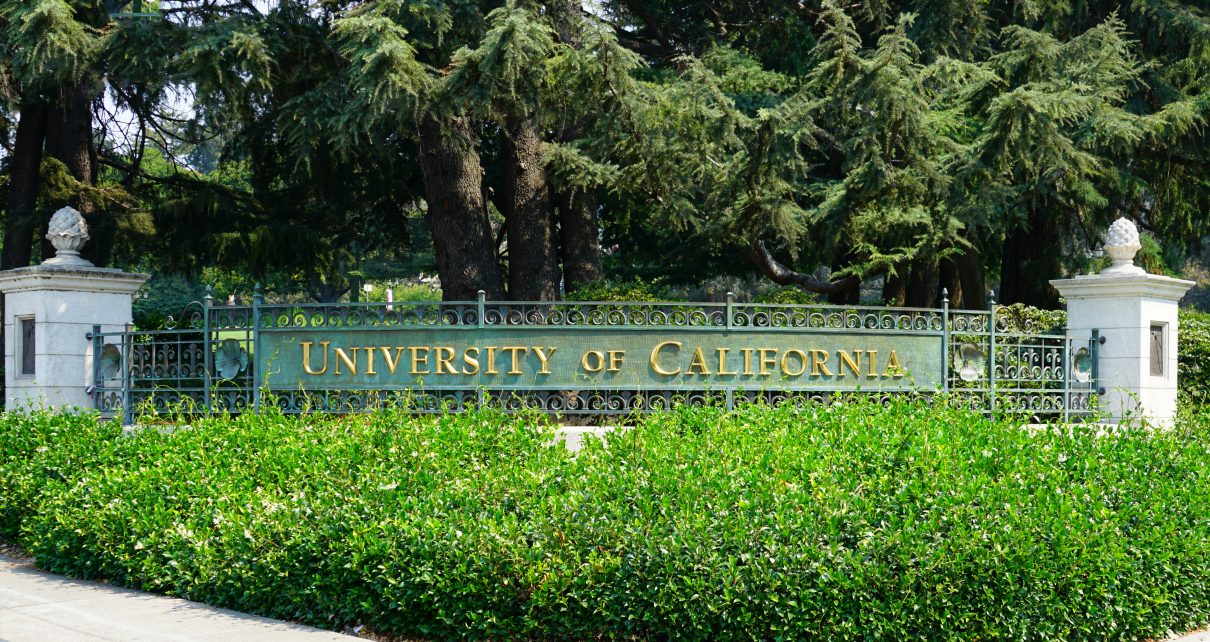
CA University Campus Palestine Protests Quiet Following Arrests, Suspensions
UC, CSU promise punishments for being active part of disruptive protests; bans on encampments, facemasks
By Evan Symon, September 5, 2024 2:45 am
In the last few weeks, Pro-Palestinian protests have returned to college campuses nationwide. And, like the thousands of arrests last year of students on campuses, those have returned as well. Major protests disrupting classes are back at Columbia University in New York, as well as several other East Coast colleges. But in California, things have been just the opposite: Quiet.
When University of California classes resumed last week, there were protests: 200 students converged at UC Berkeley for a 90 minute rally; 100 Students gathered for a protest at San Francisco State. But this isn’t anything like Columbia. Or where they were just 4 months ago.
In April and May earlier this year, California became the epicenter of mass pro-Palestinian protests. Encampments with sometimes hundreds of tents sprawled across campuses like UCLA and UC Irvine. Barriers were razed. Buildings were taken over. And subsequent arrests were dozens at a time. The May UCLA protest clocked in well over 200 arrests and the encampment being razed over a period of days. USC had 93 arrests during a protest. 80 at UC Santa Cruz. Even smaller colleges made nationwide news, with Cal Poly Humboldt students taking over 2 buildings on campus for a week that ended in 35 students being arrested.
So what is different?
The first thing is that punishments for being an active part of a disruptive protest are still very much there. There are currently lawsuits going on over them, and students who were arrested have admitted that suspensions and other actions by the Universities lost housing, lost campus jobs, and had delayed graduation. Most worrying for students is the fact that suspensions are indefinite, meaning that any arrest because of unlawful actions could mean that students may not graduate for quite some time.
“Oh yeah, that is number one for me,” said Nora, a student who joined in protests last year at UCLA but is opting to only do smaller protests this year in accordance to campus rules. “I was nearly arrested last year, and if I was suspended, my life would have been messed up right now. Classes don’t come back until the end of the month, but I’m expecting nothing compared to last year. And if police come, I’m gone. A lot of people are feeling this right now.”
The second thing is that both UC and the California State University system both installed encampment bans and bans on facemasks where they are being used solely for concealment. Bans are also in place for fencing, barricades, and overnight demonstrations. Combined with punishments for breaking them, students will now be much more corralled in what they can and can’t do. The state is also withholding $25 million from UC until they put into place a systemwide framework for enforcing encampment and protest rules across the system, forcing them to comply quickly.
Protests at Universities
“Protests are still allowed, but it won’t be like the anarchy of last year,” researcher Sandy Crane, who studies college protest movements, told the Globe on Wednesday. “They do not want to make national news. So they are still allowing protests, but within legal avenues to keep them much less disruptive and not allowing them to stay in one place for very long.
“This is exactly what campuses did during the Vietnam protests of the 70’s and the Apartheid protests of the 80’s when they got too big and out of hand and it started hurting non-protesters. Same playbook as it is tried and true. We’ve only seen a few so far, with most Universities not back for the fall semester just yet. If there is no cease-fire by then, adding in all the election strife, we could see some protests test these new limits. If any campus would do it, it would be UCLA as they proved last year by having the largest protests and arrest events in the country.
“Students are generally fine with protests, but not when it starts disrupting their lives, like making them late, making it hard to study, or flat out cancelling classes. Everyone is hoping that there will be an equilibrium now. And these early protests are showing that it is working. But lets wait until the fall to see what will really happen. Especially by the one year anniversary of the war if it is still going on.”
Most Universities in the state return for classes this month.
- Bill to Require Law Enforcement Disclosure if AI Was Used To Help Write Reports - August 7, 2025
- Gov. Newsom Files FOIA Request To ‘Expose True Cost’ Of L.A. Federal Troop Deployment for Anti-ICE Riots - August 6, 2025
- California Redistricting: How Newsom’s Plan Will Demolish Hard Fought GOP Gains - August 6, 2025


So CONSEQUENCES of arrest and suspension actually WORKED on the out-of-control protests and violence and vandalism on university campuses in California? You don’t say….
Now university students who are actually there to work and attend classes and move on campus from place to place can do so in peace and without harassment.
Money talks. The threat of losing state and federal dollars is forcing weak administrators to make common sense changes. Donald Trump is threatening to deport “students” who are funded by foreign groups and sympathizers on college campuses.
Thank God for Trump using some commonsense…..obviouslylacking in the mind-boggling stupid campus administrators and generally stupid liberal student population.
Hopefully, students will get out and vote for Trump/Pence.